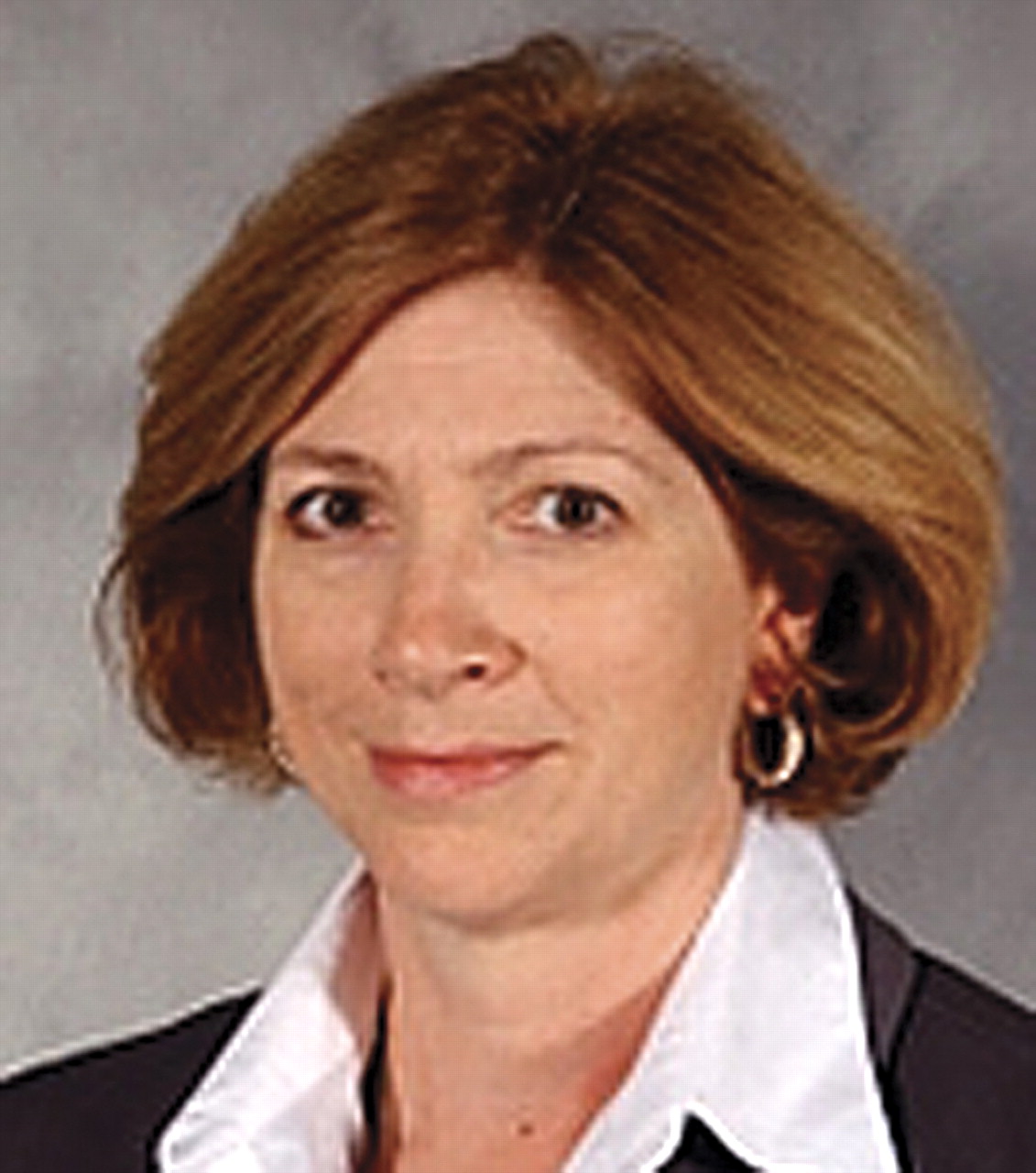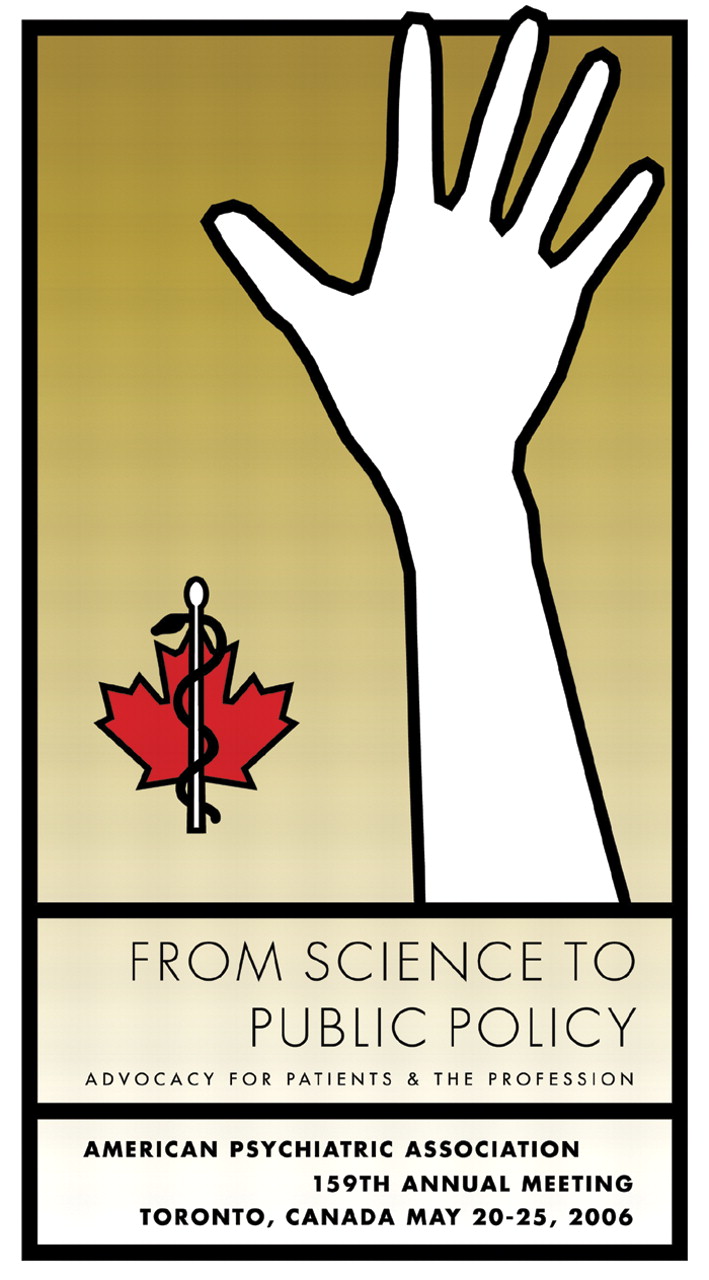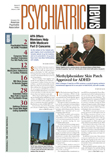APA is changing direction. While last year's annual meeting was held in the south—Atlanta—this year's meeting takes a leap north to Toronto, Ontario. But other than location, APA members can expect the annual meeting to deliver the same high-quality scientific sessions and numerous opportunities to tour city sites and interact with many of psychiatry's leading experts on clinical and professional issues.
Toronto, the capital of Ontario and Canada's most important urban center, is located on the north shore of Lake Ontario. It is the hub of the nation's commercial, financial, industrial, and—probably most important to APA members during their visit—cultural life: it is home to numerous museums, historic sites, and performing and visual arts centers.
The theme of this year's meeting, selected by APA President Steven Sharfstein, M.D., is “From Science to Public Policy: Advocacy for Patients and the Profession.” As those of you who attended the 2005 annual meeting know, Dr. Sharfstein called on all APA members to become involved in advocacy work, whether on the local, state, or national level. All the scientific knowledge that psychiatry has gained in the last 20 years means little if Americans do not have access to high-quality mental health care. A number of sessions at this year's meeting will expound on this important point.
Other sessions, selected by the APA Scientific Program Committee with the support of the annual meetings staff, will offer the latest information on research advances in psychiatry and their clinical applications.
Here are some of the meeting highlights planned to date. Updated information about the meeting and extensive information on Toronto attractions will appear in the February 17 issue of Psychiatric News.
•
Dr. Sharfstein will present his presidential address at the Opening Session on Sunday, May 21, at the Toronto Convention Centre, headquarters for the meeting.
•
The presenter of this year's William C. Menninger Memorial Lecture will be David K. Shipler, who won the Pulitzer Prize for his nonfiction book Wounded Spirits, Arab and Jew in the Promised Land in 1987. This book was born out of his experiences as a New York Times correspondent in Jerusalem. Shipler's most recent book, The Working Poor: Invisible in America, highlights his keen understanding of the challenges and barriers that people who live in poverty face daily. Shipler will present his lecture at the Convocation of Fellows on Monday, May 22.
•
Two of the Distinguished Psychiatrist Lectures relate directly to the meeting theme. The first will be presented on Tuesday, May 23, at 11 a.m. by Mindy Thompson Fullilove, M.D., a research psychiatrist at New York State Psychiatric Institute and a professor of clinical psychiatry and public health at Columbia University. She has studied AIDS and other problems of innercity neighborhoods in depth and received a Robert Wood Johnson Health Policy Investigator Award to study the consequences of urban renewal on African-American communities. The other lecture will be presented on Wednesday, May 24, at 9 a.m. by James Comer, M.D., a professor of child psychiatry at Yale University's Child Study Center. He is the founder of the Comer School Development Program and an inspiring advocate for children and pioneer of the Comer Method.
•
A special track of sessions planned in collaboration with the National Institute on Alcohol Abuse and Alcoholism (NIAAA) has been included in this year's scientific program. The track will focus on promising new treatments and research developments for people with alcohol use disorders.
•
Vivian Pinn, M.D., director of the Office of Research on Women's Health at the National Institutes of Health, will deliver an invited lecture on research advances in women's health that have relevance to psychiatry. The mission of the office she heads is to support research in women's health.
•
Altha Stewart, M.D., president of the American Psychiatric Foundation and immediate past president of the Association of Women Psychiatrists, is this year's winner of the Alexandra Symonds Award and will present a lecture in association with the award on Tuesday, May 23, at 2 p.m. She is being recognized for her outstanding contributions in women's mental health and leadership.
•
We are especially honored that this year's Adolf Meyer Award Lecture will be presented by Aaron T. Beck, M.D., University Professor Emeritus of Psychiatry at the University of Pennsylvania. He is internationally recognized for his pioneering work in cognitive therapy for depression. His influential books include Cognitive Therapy and the Emotional Disorders; Depression: Clinical, Experimental, and Theoretical Aspects; and Cognitive Therapy of Depression.
•
The annual meeting adds a new format this year planned collaboratively with the American Psychiatric Publishing Inc. Editorial Advisory Board and its chief, Robert Hales, M.D. The format consists of a series of sessions bringing together thought leaders to review recent advances in five areas of psychiatry: psychopharmacology, personality disorders, psychodynamic psychotherapy, mood disorders, and schizophrenia.
•
Rick D'Ali, M.D., a child psychiatrist at Duke University and a media expert, will moderate a follow up to last year's popular debate on second-generation antipsychotics and how their safety and efficacy compare with those of first generation antipsychotics.
Remember, the above list represents just some of the highlights planned to date. You'll be glad that you already reserved your room (
see box below) and registered for the meeting when you receive the
Psychiatric News annual meeting issue. ▪


